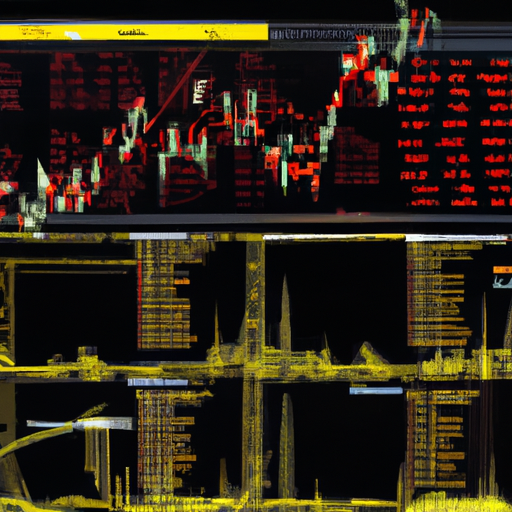Understanding Trade Execution In Today’s Financial Markets
Trade execution is the heart of any trading strategy, and getting it right can make all the difference between profit and loss. Whether you’re using automated trading or engaging in manual trades, understanding how trade execution works is crucial.
In this blog post, we will dive into the various aspects of trade execution and provide insights on how you can optimize it for better results.
What Is Trade Execution?
Trade execution refers to the process of completing a buy or sell order in the financial markets.
When you place an order through your chosen stock trading platform, it goes through a series of steps before it’s finalized.
These steps include order routing, matching, and confirmation.
The speed and accuracy of trade execution are critical factors that can affect your overall trading experience.
The Importance Of Speed In Trade Execution
In the high-frequency trading world, milliseconds matter.
Even a slight delay in executing a trade can lead to significant financial losses.
That’s why many traders opt for forex VPS (Virtual Private Servers) to ensure faster and more reliable connections to their trading platforms.
For instance, if you’re involved in algo trading algorithms, speed is paramount because automated systems make decisions in microseconds.
A delay could mean missing out on profitable opportunities or executing trades at less favorable prices.
Factors Affecting Trade Execution Quality
Several factors influence the quality of trade execution:
– Latency: The time it takes for your order to reach the market
– Slippage: The difference between the expected price of a trade and the actual price at which it is executed
– Liquidity: The ease with which an asset can be bought or sold without affecting its price
To mitigate these issues, many traders rely on advanced tools like algorithmic trading software that can optimize order routes and minimize latency.
For example, using a top-tier trade station can significantly reduce slippage by ensuring that orders are executed promptly and at the best available prices.
Different Types Of Trade Execution Methods
There are various methods to execute trades, each with its unique advantages and disadvantages:
Market Orders
Market orders are executed immediately at the best available current market price.
They offer quick entry but come with the risk of slippage during volatile market conditions.
This method is often used by those seeking instant execution without concern for minor price variations.
Limit Orders
Limit orders allow you to specify a maximum (for buys) or minimum (for sells) price at which you’re willing to execute your trade.
These orders offer more control over entry points but may not be filled if the market doesn’t reach your specified price.
This method is particularly useful for traders who have specific target prices in mind.
Stop Orders
Stop orders become market orders once a specified stop level is reached.
They help automate exits from losing positions but also carry risks if slippage occurs during rapid market movements.
Many traders use stop orders as part of their risk management strategies to protect against significant losses.
The Role Of Automated Trading In Enhancing Trade Execution
Automated trading systems have revolutionized how trades are executed by minimizing human error and maximizing efficiency.
With advanced algorithms capable of analyzing vast amounts of data within seconds, these systems ensure optimal trade placement every time.
Using one of the top 10 trading platforms with robust automated features can give you a competitive edge in today’s fast-paced markets.
For example, platforms like MetaTrader 4 offer comprehensive tools for designing custom algorithms tailored specifically for individual trader needs.
The Benefits Of Using Algorithmic Trading Software
Here are some key benefits associated with using algorithmic software:
– Efficiency: Algorithms execute trades faster than humans ever could
– Consistency: Removes emotional bias from decision-making processes
– Backtesting Capabilities: Allows testing strategies against historical data before live deployment
Many professional traders rely on algo-trading due to its ability not only improve execution quality but also enhance overall strategy performance over time.
If you haven’t yet explored this avenue within your own practices – now might be perfect timing!

